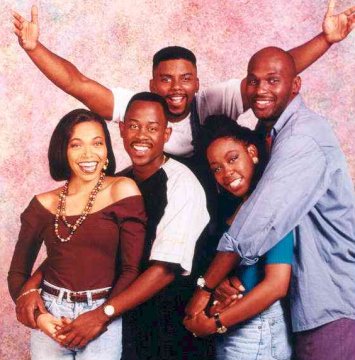Many African Americans have become disenchanted with Black Entertainment Television (BET) and its heavy focus on music for years. This waning support is what lead to the launch of the TV One channel in 2004. With initial lineups that featured Patti Labelle and Tom Joyner, TV One is the first serious competitor to BET in years.
However, looking closely at each networks programming lineup reveals that each has strategically targeted a different market. TV One isn’t available in nearly as many homes as BET nationwide. Its lineup is targeted to an older audience of 25 to 49-year-olds. This explains why it hasn’t aired a single music video in its five years. It broadcasts original programs such as the cooking show ”Turn Up the Heat With G. Garvin,” a fast-paced , hip, funny show featuring a slang using gifted chef creating delicious black favorites as well as more upscale cuisine. To fill its 24-hour schedule, TV One is also broadcasting old episodes of ”Good Times,” ”Martin,” ”227,” and ”It’s Showtime at the Apollo.”
BET on the other hand had an initial network lineup consisting of music videos and original programs like Video Soul, BET Tonight and Lift Every Voice just to name a few. It also featured reruns of popular black sitcoms. For most of its existence, BET was mostly controlled by Robert Johnson, who held 90% of the company’s value, while John Malone held the remaining 10%. Founded in 1980, the network enjoyed moderate success in its infancy as many of its market did not have access to cable TV. Although BET was not as popular or profitable as other networks, it benefited from the loyalty of many black families who stayed tuned to it 24 hours a day. However, Robert Johnson sought to increase its profitability by turning to a younger audience after 1986. After that time, BET focused primarily on rap and R & B music videos including the controversial BET Uncut. BET Uncut was a music video program that contained highly sexualized imagery. Because of it’s content, the show was rated TV-MA and accompanied by an on-air message stating that it is not suitable for children under the age of 17.
After several years of BET Uncut, rapper Chuck D from Public Enemy and filmmaker Spike Lee began to publicly protest BET’s programming and actions. In response to the backlash from prominent black celebrities and black church constituents, BET removed suggestive content from the videos that it airs. Today, entire verses are removed from certain rap videos and BET Uncut has long been terminated.
The changes made at BET to clean up its programming have not satisfied everyone. Many have used it as an opening to challenge the historic network.
The questions are: Should black tv be focused on Profit or Purpose? Are we holding black television to a standard that other networks are not held to?
Today, many people of color should be proud that there are a growing number of networks that cater to our varied taste. Through the power of the remote control we now have greater choices afforded us. Whether you are a parent watching TV One in the living room or a teenager watching BET in the bedroom, black television is becoming more diverse and appealing than ever.
So put aside the complaints about a particular network and enjoy the fact that we are better represented today…in all our facets.
We’ve come a long way and the future potential of black television is increasingly much brighter than ever.

